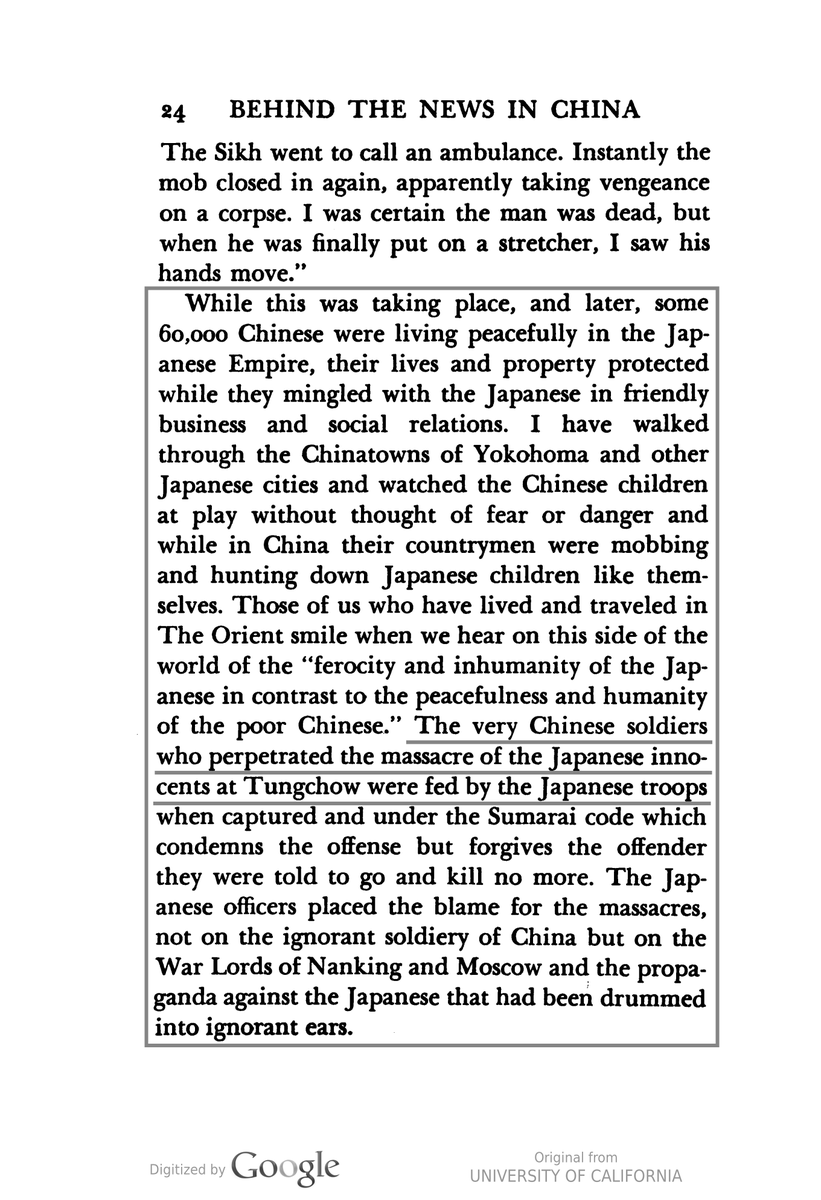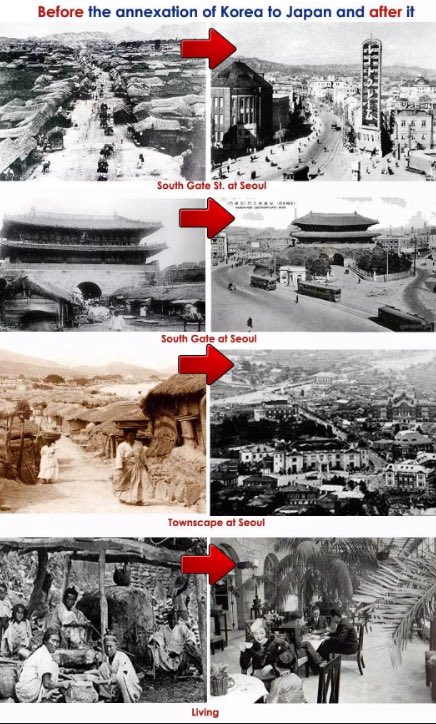#ChineseAtrocity
The Tongzhou Incident was an incident in which Chinese troops (Jidong Anti-communist Autonomous Government Security Forces) attacked Japanese people in Tongzhou, China (Republic of China) on July 29, 1937, attacking Japanese residents and
The Tongzhou Incident was an incident in which Chinese troops (Jidong Anti-communist Autonomous Government Security Forces) attacked Japanese people in Tongzhou, China (Republic of China) on July 29, 1937, attacking Japanese residents and

Japanese military units and special agencies, resulting in a massacre of Japanese and others. The Japanese army was destroyed, 223 of the 385 Japanese residents were massacred, and most of the women were raped and murdered.
It is said that many of the methods of killing were bizarre. About half of the Japanese nationals were Koreans.
The following is an excerpt of a story written down by a person (Parliamentary Secretary of the Japanese Army) who visited Tongzhou immediately after the incident:
The following is an excerpt of a story written down by a person (Parliamentary Secretary of the Japanese Army) who visited Tongzhou immediately after the incident:
"It was said that since that incident, there were only about 1,500 or less than 2,000 Chinese. I see most of the Chinese have fled somewhere."
"First of all, we went toward the building of the special agency. As you know, Col. Hosoki was there and there were quite a few people. "
"First of all, we went toward the building of the special agency. As you know, Col. Hosoki was there and there were quite a few people. "
"All of these people were killed in the battle, and not a single one of them was left."
"A dog ran out from the back of the agency."
"It was a dog that looked like a mixture of a German Shepherd and an Akita."
"A dog ran out from the back of the agency."
"It was a dog that looked like a mixture of a German Shepherd and an Akita."
"The dog was not a very good dog. He had a penetrating gunshot wound in his left groin."
"He came up to us with his ears drooping, tail wagging, and cheeked on us."
"He came up to us with his ears drooping, tail wagging, and cheeked on us."
"There was a Chinese man who was probably trying to push his sympathy on us by offering to show us around. The Chinese all looked like demons to me."
"When we told the dog to go away, the dog tried to bite the Chinese while barking 'oowoh'."
"When we told the dog to go away, the dog tried to bite the Chinese while barking 'oowoh'."
"The dog tried to bite the Chinese, whereas he tried to cheek on us."
"I patted the the dog head a little, and he wagged his tail happily. When I asked him to give me his hand, he gave it. I realized that the Japanese had kept this animal."
"I patted the the dog head a little, and he wagged his tail happily. When I asked him to give me his hand, he gave it. I realized that the Japanese had kept this animal."
"Because the dog was owned by the Japanese, he does not understand the language of the Chinese."
"I immediately went to where the survivors were. There were children without parents, grandmothers, and daughters. I spoke with them.
"I immediately went to where the survivors were. There were children without parents, grandmothers, and daughters. I spoke with them.
I gave comfort and encouragement, comforting gifts, and greetings.
At the end of my talk, I told them about the dog. Even animals like dogs, even animals like animals, know that they owe a debt of gratitude for a meal. They hear what we Japanese say and come close to us, and
At the end of my talk, I told them about the dog. Even animals like dogs, even animals like animals, know that they owe a debt of gratitude for a meal. They hear what we Japanese say and come close to us, and
they can smell the scent of our bodies. However, I said that the Chinese people in Tongzhou, who are no better than animals, are no better than dogs, no better than animals. When I said that, all the people in the public hall cried when I told them about the dog.
Perhaps it was because the cruelty of the Chinese had sunk in so deeply, or perhaps I was sentimental. I was also crying with tears in my eyes."
[Only 32 or 3 soldiers were defending against over 3,000 Chinese soldiers.]
[Only 32 or 3 soldiers were defending against over 3,000 Chinese soldiers.]
"There is a square in front of the garden of the garrison, and he said that about 70 of who came near there were killed by shooting from the roof of the garrison. There were also many wounded and killed garrison members, and the garrison was almost completely wiped out.
"The reason why they did such a thing is due to the reason for this.
China was determined to instill the Communist Party in Japan and thus defeat Japan, so they set up the Hui Hui religion (Islam), its teachers, and Jews to instill the Communist Party in Japan.
The students of Peking University and Nankai University were the first to take the lead in this campaign to kill Japanese people."
"In addition, some of the security forces (originally on the Japanese side) were involved in civil strife, which they thoroughly instigated.
"In addition, some of the security forces (originally on the Japanese side) were involved in civil strife, which they thoroughly instigated.
The way they spread rumors was also extreme.
What they were saying was that 'Japan is losing now. Even in Tianjin, the Chinese Central Army is already in the Japanese concession. There are no Japanese troops in Beiping either. Tongzhou and other areas must also be defeated now.'
What they were saying was that 'Japan is losing now. Even in Tianjin, the Chinese Central Army is already in the Japanese concession. There are no Japanese troops in Beiping either. Tongzhou and other areas must also be defeated now.'
Thus, in Tianjin, Beiping, and Tongzhou, students and members of the 藍衣社 (an intelligence and espionage agency of the Kuomintang government directly under Chiang Kai-shek, with many gang members) and the plain-clothes soldiers came and killed Japanese with pistols."
"It was not only the soldiers and security forces who killed. I cannot tell you how they killed women and children. In many cases, they killed children by turning them upside down and smashing their heads. For women, they put needles in their noses and dragged them along
as if they were pulling a cow.
The women were thus raped and humiliated."
koyanonezumi.blog.fc2.com/blog-entry-308…
The women were thus raped and humiliated."
koyanonezumi.blog.fc2.com/blog-entry-308…
The American journalist Frederic Vincent Williams wrote more details with analysis of international relations in his book "Behind the News in China". 







The more atrocious stories were told by actual survivors, but that's all for today ...
@threadreaderapp unroll
• • •
Missing some Tweet in this thread? You can try to
force a refresh










